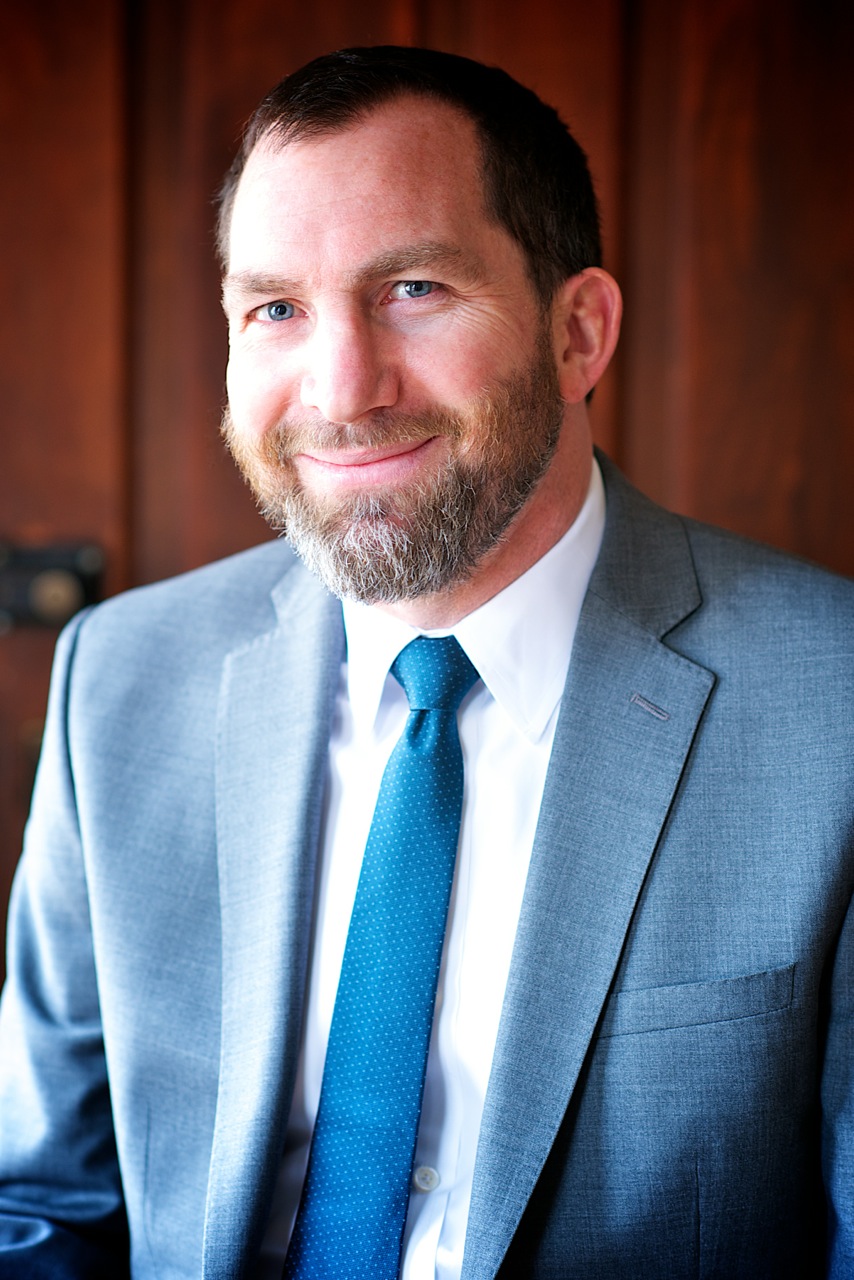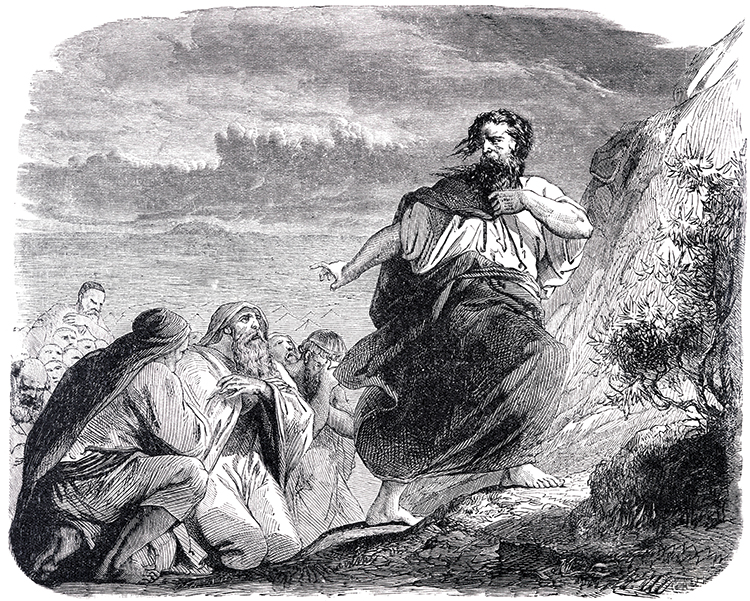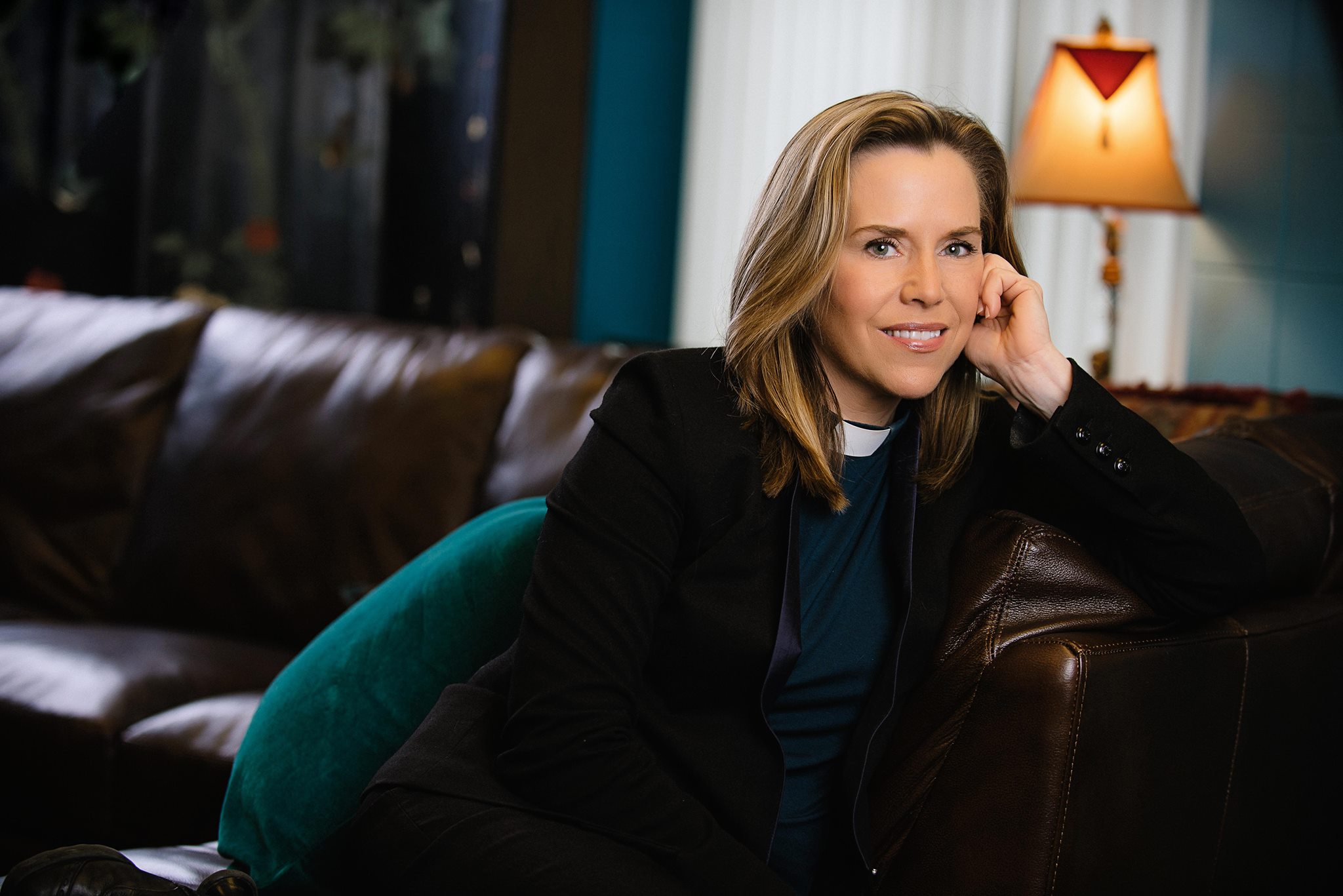FOREWORD
I am a sentimental fool. The nostalgia of my past happily haunts me today. At 55 years old, I’m a member of the last group of folks who rode a bike with a bag full of newspapers bouncing off the front wheel. I still have my old red paper bike and the Rocky Mountain News bag hanging in my garage. The old bike is now a cruiser; I ride it around my neighborhood in Denver on warm days. It’s the same neighborhood I rode through delivering the newspaper over forty years ago. Every ride is a sentimental journey.
In November 2023, I was blessed to attend the Michigan Conference Annual Meeting in Grand Rapids. It was a lively affair. I was graciously hosted by my colleague and friend, Grand Rapids resident Rev. Andy DeBraber, Senior Generosity Officer for the National Setting. I met many new friends and met friends in person whom I had become acquainted with online during the Covid years. It was a wonderful time. The highlight of the trip was being present for a wonderfully challenging and prophetic sermon by Michigan Conference Minister, the Rev. Dr. Lillian Daniel. In her sermon, Rev. Daniel pushes back at the ways nostalgia can become a sin for those of us in the church. She points out how sentimentality can blind us from what God is doing now and next. Her sermon is a challenge to people like me, a sentimental fool.
As I look back with less rose-colored memories, I have to admit that the newspaper route was one of the worst jobs I ever had. Getting up at five in the morning to fold papers in an ice-cold garage, and then riding that bike through the Colorado snow was horrible. I guess, I prefer the bike as a summer cruiser without all the work.
The spacious tent that Rev. Daniel describes below challenges our nostalgia and sentimentality and prepares us for a call to work for what God’s doing next.

Church Relations and Philanthropy
Nostalgia In the Desert is Nothing New: A Meditation on Numbers Chapter 11
By Rev. Dr. Lillian Daniel
In case you don’t have the text of Numbers Chapter 11 cross-stitched on a pillow, allow me to refresh you on one of my favorite leadership stories in scripture. In the book of Numbers, the people of Israel have been freed from slavery and they are following Moses, cared for by God with “Manna from Heaven,” a miracle food (some sort of pasty cake dough they fried up day after day) that allowed them to survive but doesn’t sound very appetizing. Eventually they started to remember how much better the food was back in Egypt, remembering the leeks and the cucumbers of the good old days.
Nostalgia is nothing new. Whenever I visit churches, I hear the same longing for better days now past, be it the 1960’s, the 80’s or a more recent era of their favorite pastor. They recall the days when churches were full, and the potlucks were fantastically filling. What they don’t recall is that nobody knew back then that canned soup as a key ingredient in every vegetable dish was bad for you. But that’s how nostalgia works. It is, and has always been, an unreliable narrator.
“Thousands of years ago, in the book of Numbers, the nostalgia expresses a deeper pain and loss that I hear from clergy and lay leaders today, who are simply tired of the desert, whether it is the desert of the pandemic or the desert of the decline of the church that started long before the pandemic, or the desert of despair.”
Thousands of years ago, in the book of Numbers, the nostalgia expresses a deeper pain and loss that I hear from clergy and lay leaders today, who are simply tired of the desert, whether it is the desert of the pandemic or the desert of the decline of the church that started long before the pandemic, or the desert of despair. As spiritually mature people, we understand that we all have to spend some time in the desert, but it’s starting to feel like the desert never ends, as one dry spell leads to another, with nothing better in sight. Like many hardworking clergy whose lakeside skills don’t seem to be producing results in the desert, Moses finds himself discouraged and burnt out when the people complain to him and about him. So he goes up on the mountain to complain to God, who he expects to be much more sympathetic than God turns out to be. Instead of agreeing with Moses that the complaining people are indeed far too difficult and don’t deserve his specialness, God cuts him off. Instead of offering Moses a self-care seminar and a sabbatical solution, God tells Moses to stop complaining. After all, Moses is complaining about people who complain!

Instead, God suggests that Moses feels alone because he has cut himself off. He has made himself a martyr, isolating himself in order to avoid the complainers, but by doing so he has also stopped meeting with the respected leaders in the community. So, instead of encouraging Moses in his specialness, God challenges Moses to go back out to the people and gather the 70 elders, and to assess the situation not alone on a mountaintop, but back down in the desert, in the tent of meeting. Poor Moses. He shows up expecting God to sympathize with him, and maybe even give him a medal for time served with his congregation, but instead God sends him back to more meetings.
When Moses informs God about the dwindling attendance, the lack of participation and goes on to question the commitment and to judge the absent people, it sounds familiar to me. I feel convicted when God tells Moses not to be defensive. If it were me, I would feel the need to inform God that the 70 elders are not who they once were, that they are literally complaining about their freedom and remembering the good old times, as if they have forgotten that we were in slavery.
I would inform God that the recipe for manna was flawed from the get-go, if it were going to be a decades long diet, it should have had better seasoning. I might even tell God that I remember some great church potluck recipes from my childhood that involve canned soup, which makes everything better.
Next, I would inform God that fifty percent of the seventy elders have not come back to the tent of meeting yet in person, and while they may be watching somewhere online in the desert, they are doing so in their PJ’s, which is not the correct attire for elders. As for the elders who are coming, I would tell God that I could invite them, but can only guarantee the attendance of the six angriest people in the world, whose main impetus for attending seems to be to grieve the people who are not there. I would tell God that I send newsletters every week to the seventy elders, and it hasn’t worked.
But the story in Numbers goes another way. Apparently, the call goes out from a chastened Moses and this time they do show up, and when they do, they are visited by the Holy Spirit that allows them to prophesy while Moses, who thought he was the only prophet in town, has to listen instead. I imagine Moses waiting for the part of the prophecy when the seventy elders tell him he was right about everything, just as I did when I was a pastor during the pandemic, and my fervent prayer was “Lord, I am your humble servant and all I ask is that one day in the future, you reveal to the world that I was right about everything!”
But for some reason, God has yet to grant me my wish. Apparently, today and thousands of years ago, the desire to be right is not God’s highest calling for us as leaders. Then and now, God tells the isolated leader to go back out to the people, because you never know who the Holy Spirit is going to speak through next.
And in that spirit, God makes the challenge even greater for Moses. Not only is he to go back to the elders he knows from the tent of meeting, God tells him that there are two new leaders, Eldad and Medad, who are prophesying outside the tent of meeting, and Moses needs to invite them too.
You may have met Eldad and Medad. They don’t follow the bylaws. They don’t register in advance. They say they are coming to the new members class and then don’t show. They say they have decided not to join the church, but then they send in a generous donation and start volunteering with more energy than the official members. Eldad and Medad, despite their quirks, symbolize those who prophesy truths from the margins, challenging established norms. By now, Moses has seen the error or his isolated ways and connected with the elders. Why not trust God and connect with the outliers and the newcomers, and invite them into the tent rather than excluding them? The future of the people in the desert is not on Moses’s shoulders any more than it is on mine or yours.
“Why not trust God and connect with the outliers and the newcomers, and invite them into the tent rather than excluding them? The future of the people in the desert is not on Moses’s shoulders any more than it is on mine or yours.”
This is a word we always need to hear—that it is not any one person's job to save Christianity— that would be grandiose. It is not any one person's job to save the church. The world has already been redeemed and saved in Jesus Christ who has conquered death and sin and violence, and we are here to speak to that resurrection. We do not have to save anything that has already been saved.
So in that spirit, let’s also save ourselves from the sin of nostalgia by remembering the good old days as not all good. Whatever memory you have of the past, be it an all-you-can-eat buffet from God or a packed church, do you really want all of it back?
“Friends, out here in the desert of this American religious landscape, there is one change so powerful in its effect that we forget it was not always this way. We have freedom.”
Do you remember what it was like back when the majority of us wouldn't be allowed to be in lay leadership or to be clergy? Do you remember when families broke up and wouldn't speak to each other, because somebody married someone with a different faith background? Do you want that back?
Do you remember when the churches were full because people came to church to make business connections? Do you remember when the pews were full of people doing something performative, cynically rolling their eyes or even worse, there against their will?
Friends, out here in the desert of this American religious landscape, there is one change so powerful in its effect that we forget it was not always this way. We have freedom.
I personally consider it a great privilege to be a pastor and a preacher in an age and place where people do not have to come to church but can choose to come to church. I consider it a gift to serve as a Conference Minister preaching covenant when times are hard, because that is when covenant matters most.
I am excited about the prospect of our churches bringing in Eldad and Medad, but not if their only purpose is to have Eldad and Medad fund and volunteer old ministries that the seventy elders have lost the energy to continue. Eldad and Medad deserve better. They are showing up and seeking God in their own right, not to take us backward but to take us forward. And as a Conference Minister facing a clergy shortage, I believe that Eldad and Medad prophesying outside the tent may be our next pastors.
We can all get stuck in the sin of nostalgia—remembering only the things that we are sentimental about and not respecting the realities. We can ignore the gifts of the Holy Spirit that happen when times are hard. We can act as though manna from Heaven is boring as opposed to a miraculous form of sustenance, laid right in front of us by God. The tent of meeting then, as now, is not a physical structure in the desert, or a gothic church in the city, but it is the mighty cloud of witnesses, spanning space and time, more spacious and sturdier than we can imagine. So it is good to meet together, here in the desert and beyond.

Rev. Dr. Lillian Daniel has spoken at the National Cathedral, Duke Chapel, King's College, London and Queen’s College, Ontario, but on most Sundays, you can find her preaching at one of the 144 churches in her care in the beautiful state of Michigan.
